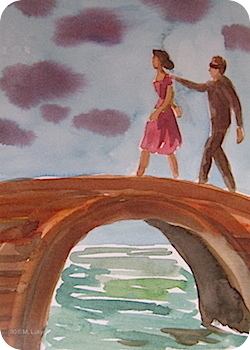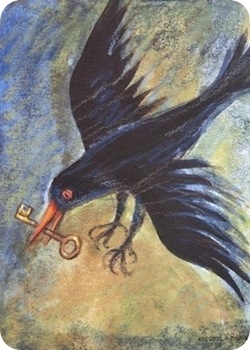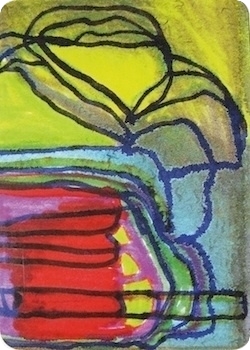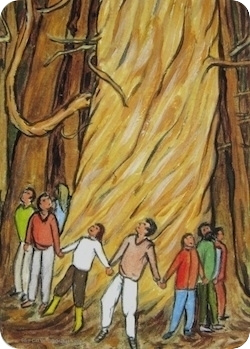
Welcome to the OH Cards Institute
Resources on the OH Metaphoric Associative Cards
Our mission is to make the growing resources about Metaphoric Associative Cards, specifically the OH Cards Genre, available to more people. The content of this site is being generated and shared by users worldwide.
We would like to thank all the contributors – educators, therapists, coaches, social workers, doctors, nurses, trainers and many other professionals. Since they have benefitted from using these tools they are willing to go to some effort to pass on information about how they like to use the cards. And we would like to encourage everyone who feels they have something to share to do so. We appreciate it!
The contributions have been cross-referenced in three ways: by methods, studies, and context. Methods shows ways OH is used in various areas, from counseling to creativity. Studies include scholarly and professional articles, popular magazine articles, videos, and more. Context includes information about OH Cards as seen from various points of view, such as personal, artistic, and cultural.
To order OH Cards and view the decks, visit OH Cards International.
“Our unconscious always knows the right thing to do, how to find a way out of the situation, and what choice to make; it is only necessary to learn to listen to it. Metaphoric associative cards, in this case, are an indispensable guide and assistant.”
This handy guide introduces you to the OH Cards genre, offers a few activities, and provides links to additional resources:
Share your thoughts
What´s your response to this card? Click the card to share your thoughts.
Show moreLatest
Article in “Revue médical suisse”: Psychological distress is common in patients after solid organ transplantation and often motivates psychological and psychiatric consultations. Due to its clinical and economic potential, the CHUV has been offering a group therapy for solid organ transplant recipients since 2022.
Patients use the sessions to talk about their feelings of stigmatization or fear of contamination, but also about their need for a balance between overstepping some limits and rigorous discipline regarding medication intake and precautions to be taken. They talk about issues they usually do not discuss with the various health professionals who follow them. The group therapy thus contributes to their empowerment and helps them to take responsibility in their life and medical follow‑up.
This article describes a modified form of the IPPI interview for children based on the use of pictorial representations, i.e., the Metaphoric and Associative Cards, “OH-Cards”. A clinical vignette illustrates the different steps of this intervention such as those provided to sibling 6-year-old twins in the context of a post-immediate CUMP intervention after a drowning.
Results. – Adding the pictorial cards to IPPI interview techniques facilitated the children’s verbaliza- tion, the narrative reports of the traumatic experience with the professional, and globally enhanced the symbolization process.
Discussion. – This developmental-sensitive adaptation of the commonly used debriefing approach illus- trates the positive synergy between the professional cultures of the clinicians from the CUMP and the child psychiatrists.
Conclusion. – Children-specific adaptations of the IPPI based on symbolic mediators, such as pictorial cards, should be considered as a reference tool at this age in the training of CUMP professionals.
Physiological indicators of emotional arousal related to ANS activity in response to associative cards for psychotherapeutic PTSD treatment By Sivan Raz and Mooli Lahad SEE FAR CBT is an integrative treatment protocol for PTSD and anxiety disorders which combines CBT, body-mind (somatic experience) and imagery-based (fantastic reality; FR) methods. FR is introduced using associative therapeutic […]
Continue ReadingA Binder in the Clients’ Process of Exploration, Observation, Clarification, Resignification Abstract Introduction: The Imagogenogram (M. Voicu) is a spatial, dynamic genogram, built with the help of cards with images of human figures, bringing together the connotations related to the actual working support (images chosen by the subjects as being similar to their families) with […]
Continue ReadingExcerpts from the SWR2 broadcast on August 18, 2020 There are many widespread neuromyths about how we can improve our brains’ fitness on a daily basis – for example by notorious methods like sleep-learning, through studying in a positive mood, memorizing by the chain-of-association method or by using other memo techniques. In this context the […]
Continue ReadingRead the English translation Pasado, presente y futuro con “Habitat” Fiorella, de 58 años, está atravesando un duelo hace más de dos años, el que no logra digerir ni elaborar. Luego de 25 años, el marido se fue de la casa sin darle explicaciones, dejando a la paciente sumida en una tristeza muy profunda.Siempre se […]
Continue ReadingRead the English translation Trabajando con OH y Resilio Laura es una joven de 30 años, profesional madre de un hijo, separada hace aproximadamente un año.Laura ha recorrido un largo período terapéutico, ella consulta por primera vez a los 19 años, mostrándose muy tímida, con cierta dificultad para poder expresarse, fundamentalmente a la hora de […]
Continue ReadingRead the original presentation in Spanish Working with TanDoo Cards and OH-Cards Ana is a middle-aged woman, with a youthful look and a certain sadness in her gaze. She is a professional, mother of two kids, and going through a grieving process due to the separation with her husband and her mother’s terminal illness, with […]
Continue ReadingWorkshops
OH Workshop in China and Hong Kong / December 2023
December 2023
Contact
Moritz Egetmeyer
info@oh-cards.com
OH Basic in Buchenbach, Germany in German Language / Spring 2024
Buchenbach, Germany
Spring 2024
Contact
Moritz Egetmeyer
info@oh-cards.com









